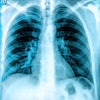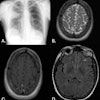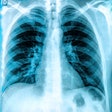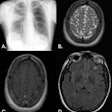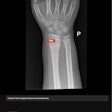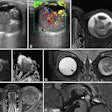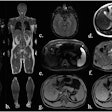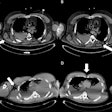For low-income women with abnormal mammograms, using a case management approach for follow-up is an effective tool that can deliver a more timely diagnostic resolution, according to a study published online March 16 in the Archives of Internal Medicine.
Rebecca Lobb, Sc.D., at the Centre for Research on Inner City Health at St. Michael's Hospital in Toronto, and colleagues studied 2,252 participants in the U.S. National Breast and Cervical Cancer Early Detection Program (BCCEDP) in Massachusetts (Arch Intern Med, March 16, 2010, Vol. 170:6, pp. 521-528).
The BCCEDP funds breast cancer screening and diagnostic services for low-income, underinsured women. The program introduced case management in 2001 as follow-up care for abnormal mammograms (BI-RADS 4 or 5), and free treatment in 2004 through Medicaid for BCCEDP participants diagnosed with breast cancer.
The program encouraged case management contractors to hire managers fluent in the languages spoken by the women served. Case managers educated patients, scheduled follow-up visits, provided transportation vouchers, and scheduled interpreter services.
"The BCCEDP case management process provides women with support to reduce anxiety, coordinates patient-doctor communications, and reduces health system barriers similar to patient navigation programs," Lobb and colleagues wrote. "Studies of patient navigation suggest that it can improve timely resolution after an abnormal mammogram."
Among women enrolled in the program between 1998 and 2007, the proportion who experienced a delay of more than 60 days before diagnosis decreased from 33% to 23% after the implementation of case management, with a significant reduction in the adjusted risk of diagnostic delay that did not differ by race or ethnicity, the researchers found.
Case management was not associated with changes in treatment delay (that is, more than 90 days), and free treatment was not associated with the risk of delays in either diagnosis or treatment beyond the improvement associated with case management.
Whether the benefits of case management outweigh the costs of its maintenance should be further investigated, according to the group, but it does seem to improve time to resolution once a woman has received an abnormal mammogram.
"Services [such as case management] likely removed barriers to diagnosis through psychosocial support and navigation of the health system," the authors wrote.
By Kate Madden Yee
AuntMinnie.com staff writer
March 22, 2010
Related Reading
Study: Less breast screening leads to more palpable cancers, March 16, 2010
USPSTF guidelines influencing doctors, poll finds, February 16, 2010
Editorial: Research flaws make USPSTF guidelines obsolete, February 8, 2010
ACR, SBI: Breast cancer screening should begin at 40, January 4, 2010
U.S. debate over mammograms splits along party lines, December 3, 2009
Copyright © 2010 AuntMinnie.com

